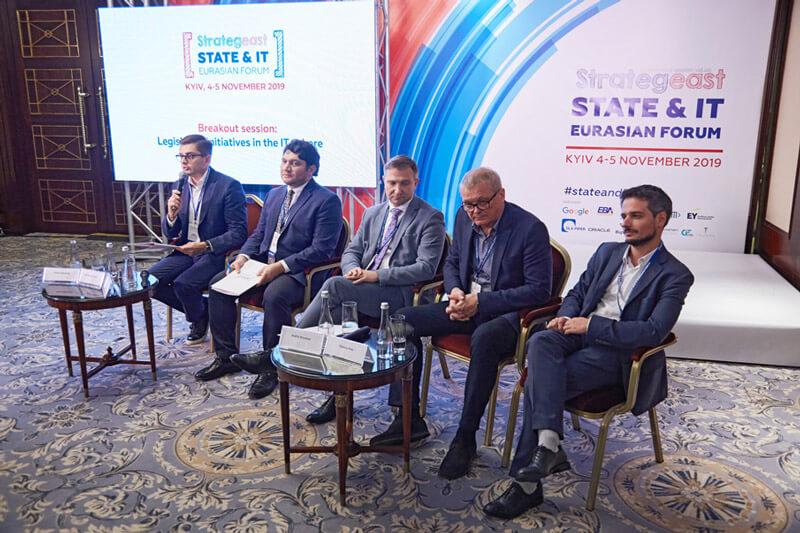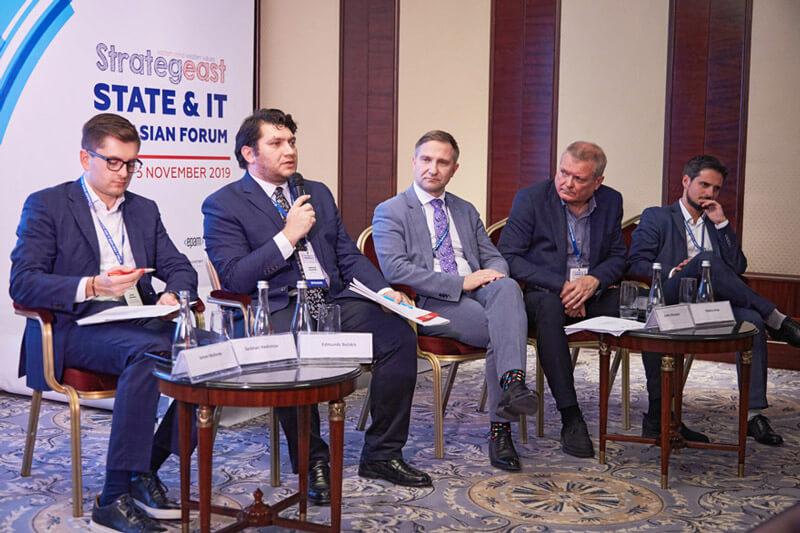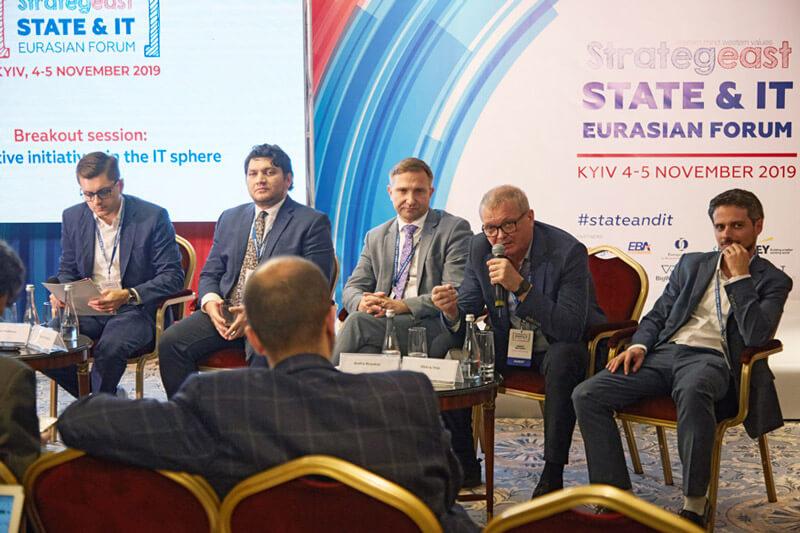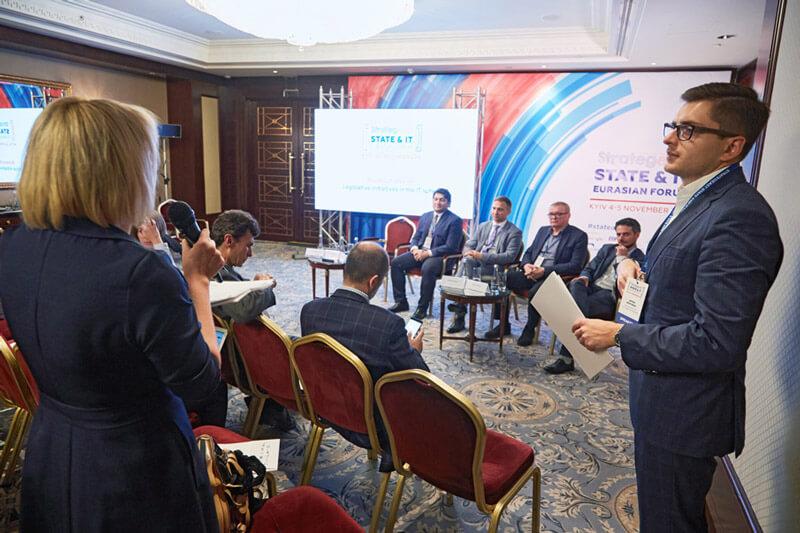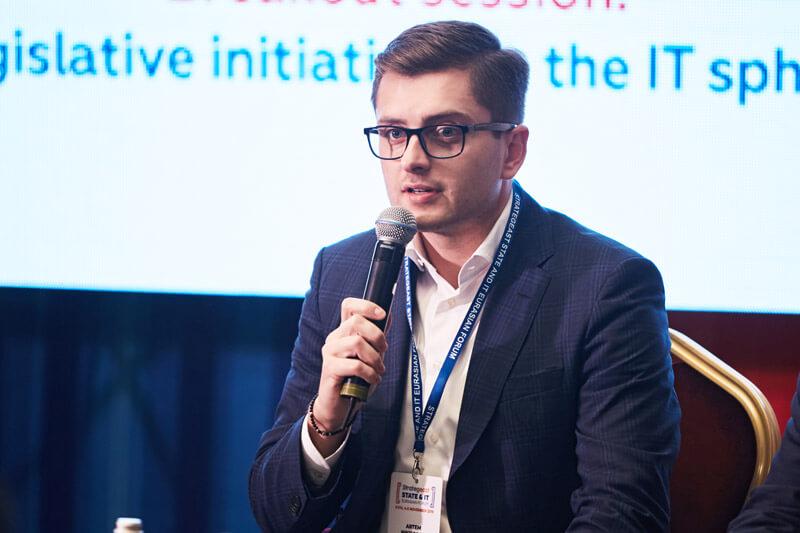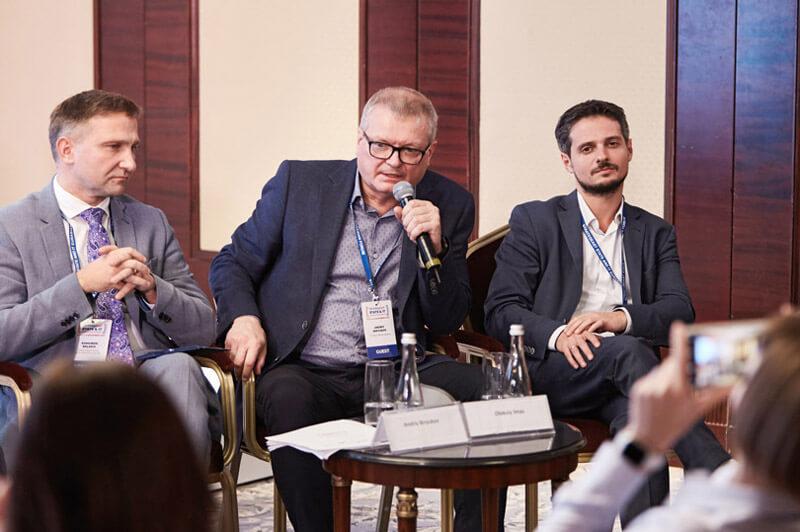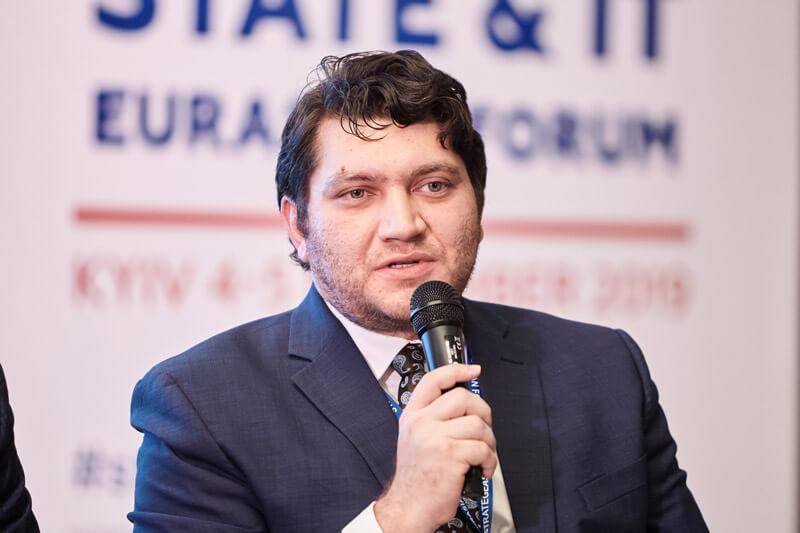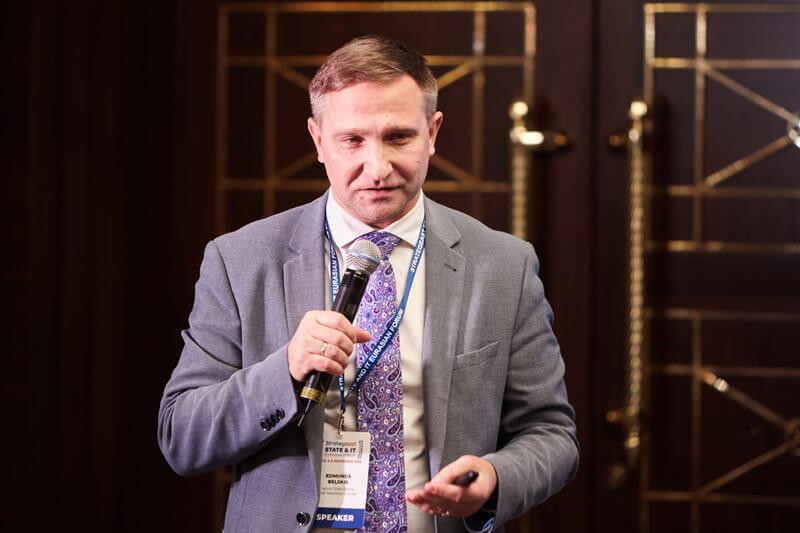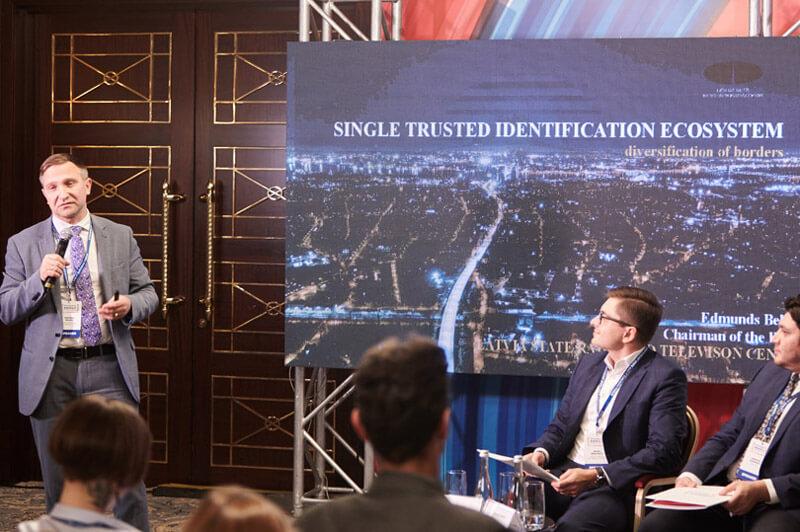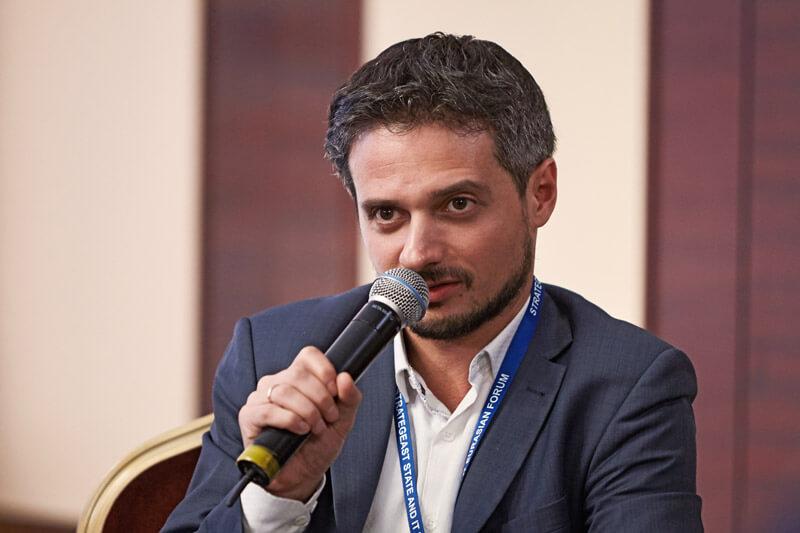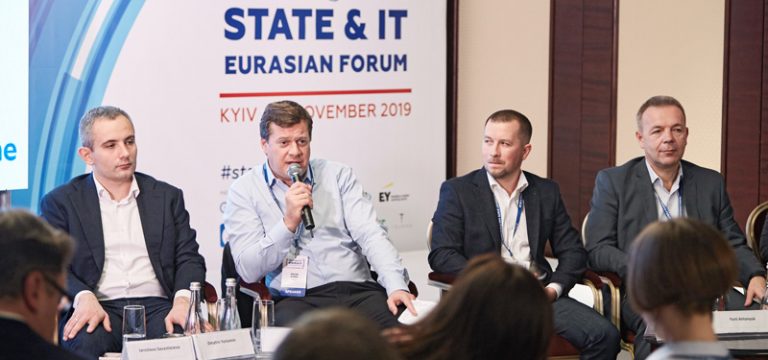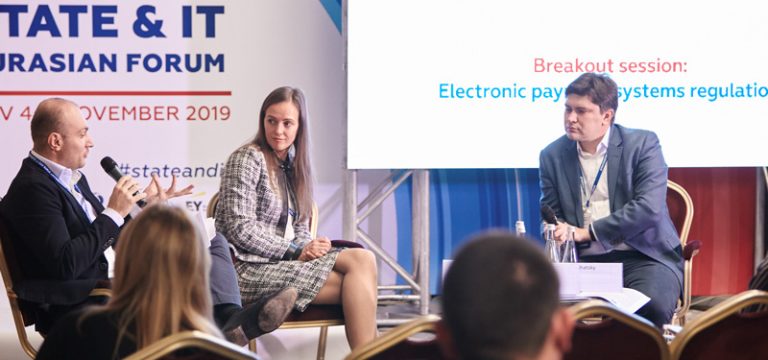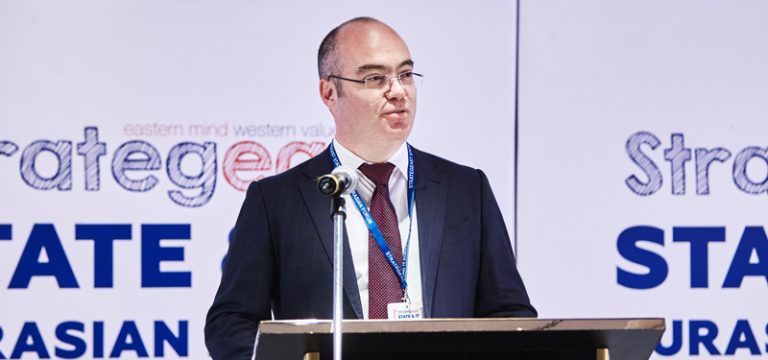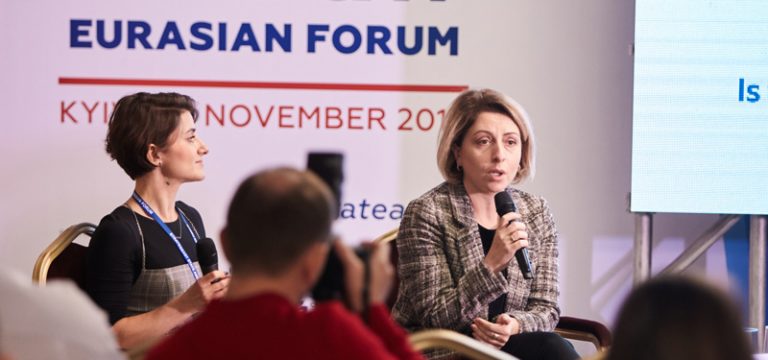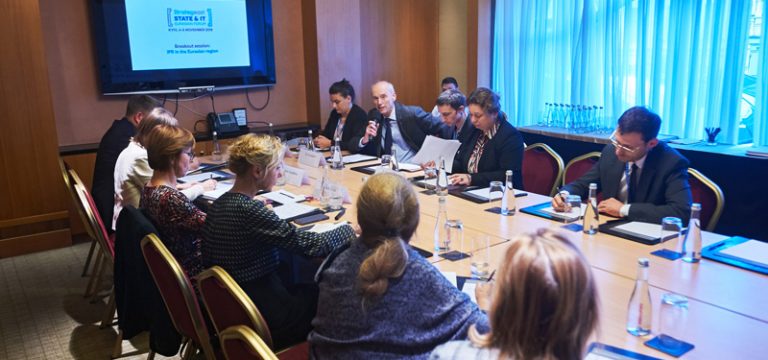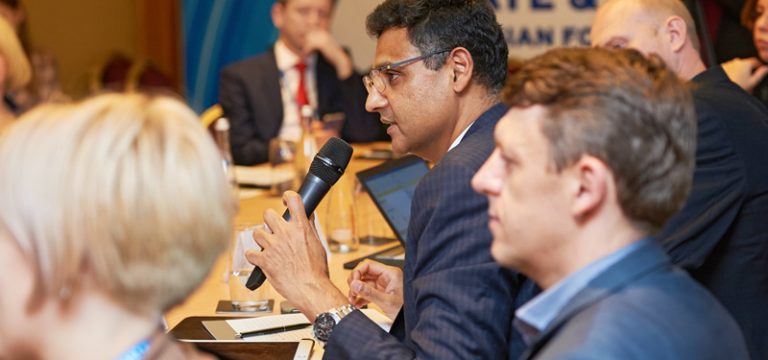![]() Presentation by Edmunds Beļskis, Latvia State Radio and Television Center
Presentation by Edmunds Beļskis, Latvia State Radio and Television Center
Download
The material is prepared based on speeches at the panel session ‘Legislative initiatives in the IT sphere’. The speakers on the panel: Edmunds Beļskis, Chairman of the Board, Latvia State Radio and Television Center; Andrey Biryukov, CEO, ‘Hi-Tech Office Ukraine’ Public Association; Sarkhan Hashimov, General Manager for Eastern Europe and Central Asia, Elcore AG; Oleksiy Imas, Head of the EY Start-up Accelerator in Ukraine; Artem Nikiforov, Office for Reforms and Legislative Initiatives (moderator).
In the Eurasian space, a situation has developed where countries are competing among themselves to attract global IT companies. Each of the countries of Eurasia is interested in opening by global IT companies such as Oracle, Microsoft, Hewlett Packard, Google and others of their development centers in this country. As a result, there is a “competition of laws” in the Eurasian space – who will give more benefits to investors, who will create better conditions. At the same time, global companies themselves consider the countries of Eurasia as a single region; many companies have introduced managerial positions for this region. Also, global companies are ready to work with the region as a whole rather than with each country individually. However, global companies are faced with such large differences in legislation in the field of IT that they cannot work as a single region with the countries of Eurasia. Panelists called on the countries of Eurasia to harmonize IT legislation. The harmonization of legislation may result in the fact that the countries of Eurasia will no longer compete with each other, but as a “single IT space” will be able to compete in the international IT market for attracting global IT companies and larger investments with other, traditional locations such as India.
To harmonize IT legislation, panelists suggest using the successful experience accumulated by each country individually. Successful Best practices include initiatives such as:
– the creation in Ukraine of a separate intellectual property court. Work on the creation of such a court is carried out jointly by the Government of Ukraine and The Center for Commercial Law Studies of Queen Mary University of London. Intellectual Property Court will start operating in Ukraine in 2020
– in recent years the most successful project in the European Union on the implementation of electronic signature has been implemented in Latvia. In 2018, the European Commission recognized Latvia as the first EU country to introduce a high trusted level application, which completely replaced the physical identification of a resident of the country with electronic identification. The legislation of the country defines 700 state services that are provided in electronic form, since 2020 tax returns are submitted only in electronic form, 43 thousand state and municipal organizations have completely switched to electronic document management – they are prohibited from using paper correspondence at the legislative level. A separate account has been created for each citizen of the country where he will receive all correspondence from state and municipal institutions. According to the law, starting from 2023, an electronic ID card will become the primary document compared to a traditional passport. At present, 10 percent of residents of Latvia already use an ID card as a primary document.
– in Belarusian legislation, decrees issued by President Lukashenko in 2017-18 introduced the concept of blockchain technologies into the legal field, creating “the world’s first jurisdiction with comprehensive legal regulation of business based on blockchain technology”. As a result, Belarus is in the top five or top ten countries with the best regulation in the field of blockchain, the creation of cryptocurrencies and cryptocurrency exchanges in various world ratings. Later, Uzbekistan has largely followed the example of Belarus.
– the Prime Minister of Ukraine in November 2019 made a statement that due to the development of the IT sector in the country, 10 percent of government officials will be reduced
The panelists assessed these practices as those that can be applied in all countries of Eurasia within the framework of harmonization of IT legislation. At the same time, examples were given of practices that, in order to develop the industry, can be adopted from more developed countries.
One of the most promising legal frameworks that practically do not work in Eurasian countries is Endowment funds. Legislation on Endowment funds would solve several problems at once: both promote the development of university education in the field of IT, which today is fully or almost completely managed by the state, and create new investment opportunities for start-ups. However, even in countries such as Ukraine, where the foundations of legislation on Endowment funds are laid, the related laws are not developed: laws on sponsorship and charity, on tax exemption for corporations investing in Endowment funds, on the controlled bankruptcy of early technology start-ups. The absence of such laws does not allow the operation of even those elements of the laws on Endowment funds that are adopted.
Speaking about the need to harmonize legislation in the field of IT industry in Eurasia countries, panelists raised an important issue: who can initiate such harmonization in the Eurasian space? For example, the Baltic countries, upon joining the European Union, automatically received such a “harmonizer” in the form of the European Commission and the European Parliament, but there is no such obvious solution for the countries of Eurasia. The choice will have to be made between “harmonization by initiative from the top” and “harmonization by initiative from below”. According to panelists, the second way is more acceptable for Eurasia when initiatives of business unions, IT associations of these countries, or international IT associations can lead to the unity of laws in the IT industry. If the role of states in the development of the IT industry is seen by panelists in stimulating investment and developing the basic infrastructure for IT clusters or digital hubs, then the industry representatives can take the legislative initiative in the field of IT. The industry is developing so fast that often government representatives simply cannot manage to realize its changing legislative needs. However, representatives of the business community of the IT industry constantly monitor global trends, are better aware of best practice and can offer more advanced and useful bills for their industry to their government agencies. International coordination in order to harmonize legislation can be realized with the support of international unions of IT entrepreneurs.

